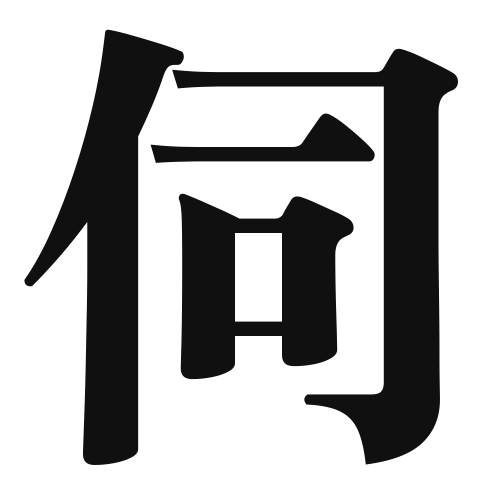1. Overview of Meaning
The kanji “伺” (u) means “to ask,” “to inquire,” or “to visit.” It is often used in a polite context, especially when referring to asking someone for information or visiting someone’s home.
2. Formation and Radical
Formation of the Kanji: The kanji “伺” is a phonetic compound (形声文字), which combines the meaning of the left part (人, meaning “person”) with the right part (司, which contributes to the pronunciation and has meanings related to “to govern” or “to manage”).
Radical: The radical of “伺” is 人 (hito), which signifies “person” and is commonly found in kanji related to human actions or characteristics.
3. Examples of Usage
Common Words and Phrases:
- 伺う (うかがう, ukagau) – to ask, to inquire
- 伺い (うかがい, ukagai) – inquiry, visit
Example Sentences in Daily Conversation:
- お伺いしてもよろしいでしょうか? (おうかがいしてもよろしいでしょうか?) – May I ask you a question?
- 明日、あなたの家に伺います。 (あした、あなたのいえにうかがいます。) – I will visit your house tomorrow.
4. Synonyms and Antonyms
Similar Kanji:
- 尋ねる (たずねる, tazuneru) – to ask, to inquire (more casual than 伺う)
- 聞く (きく, kiku) – to hear, to listen (general term for asking)
Antonyms:
- 無視する (むしする, mushi suru) – to ignore (opposite of inquiring or asking)
5. Cultural and Historical Background
Relation to Japanese Culture: The use of “伺” reflects the Japanese cultural emphasis on politeness and respect, especially in communication. It is often used in formal settings or when addressing someone of higher status.
Proverbs and Idioms: While there may not be specific proverbs that include “伺,” the concept of asking respectfully is deeply embedded in Japanese etiquette, often expressed through phrases that emphasize humility and consideration for others.
